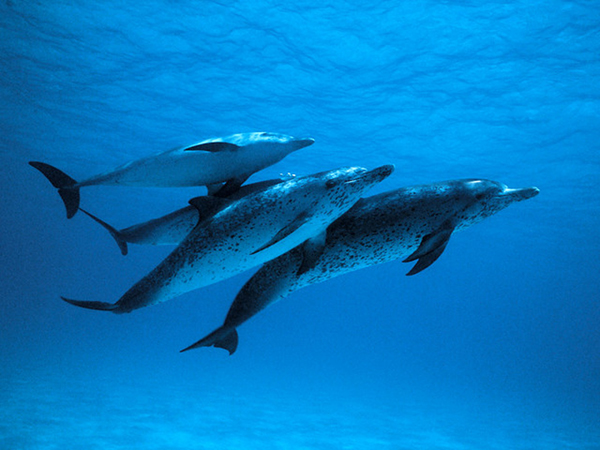- La Feria Community Holds Succesful Business Mixer Event
- Little Nashville to Take Place in Downtown Mercedes
- Lions Basketball Captures District Gold
- La Feria ISD Students Compete in Regional Chess Tournament
- Lions End First Half of 32-4A on a High Note
- La Feria ISD Held Another Successful Parent Conference
- Strong Appearance for Lions at Hidalgo Power Meet
- LFECHS Students Get to Meet Local Actress
- Students Participate in Marine Biology Camp
- Two LFECHS Students Qualify for All-State Band
Bill Aims to Help Protect Hundreds of TX Wildlife Species
- Updated: August 9, 2019

Atlantic spotted dolphins are considered to be a threatened species in Texas. Congress is considering funding proactive efforts to prevent species from being listed as endangered. Photo: Sheilapic76/Flickr
by Eric Galatas
AUSTIN, Texas – New legislation introduced in Congress could bring a lot of federal dollars back to Texas to preserve wildlife.
Janice Bezanson, executive director at the Texas Conservation Alliance, said the funding would help protect imperiled species, including the Atlantic spotted dolphin, black bears and horny toads. If passed, money would be made available through the Texas Parks and Wildlife Department for conservation groups, land trusts, researchers, universities, and private land owners.
“Texas would be eligible for more than $50 million a year,” Bezanson said. “This would be an absolute game-changer for wildlife in Texas.”
Bezanson said conserving wildlife also is an investment in Texas. She noted hunters, anglers and bird watchers are a big part of the state’s outdoor recreation industry, which generates more than $52 billion in economic activity each year, and supports more than 400,000 jobs.
The Recovering America’s Wildlife Act aims to protect more than 12,000 species nationwide in need of the greatest attention, including more than 1,300 in Texas.
Collin O’Mara, president and CEO of the National Wildlife Federation, said by acting earlier to ensure that species don’t end up threatened or endangered, years of regulatory and litigation fights can be avoided, along with the need for “emergency room” restoration efforts down the road. He said the bill is getting bipartisan support.
“At a time when Washington is pretty divided and folks can’t seem to agree about anything, there does seem to be an agreement that wildlife is something that can transcend the partisan gridlock that’s afflicting so many other issues right now in this country,” O’Mara said. “And I think that’s why we’re optimistic that this legislation will pass this year.”
Habitat loss is widely seen as a major driver of species loss, and much of the funds are expected to help landowners cover the costs of keeping habitat viable for wildlife. The bill currently has 70 co-sponsors, and must clear a vote in the Natural Resources and Budget committees to advance.


